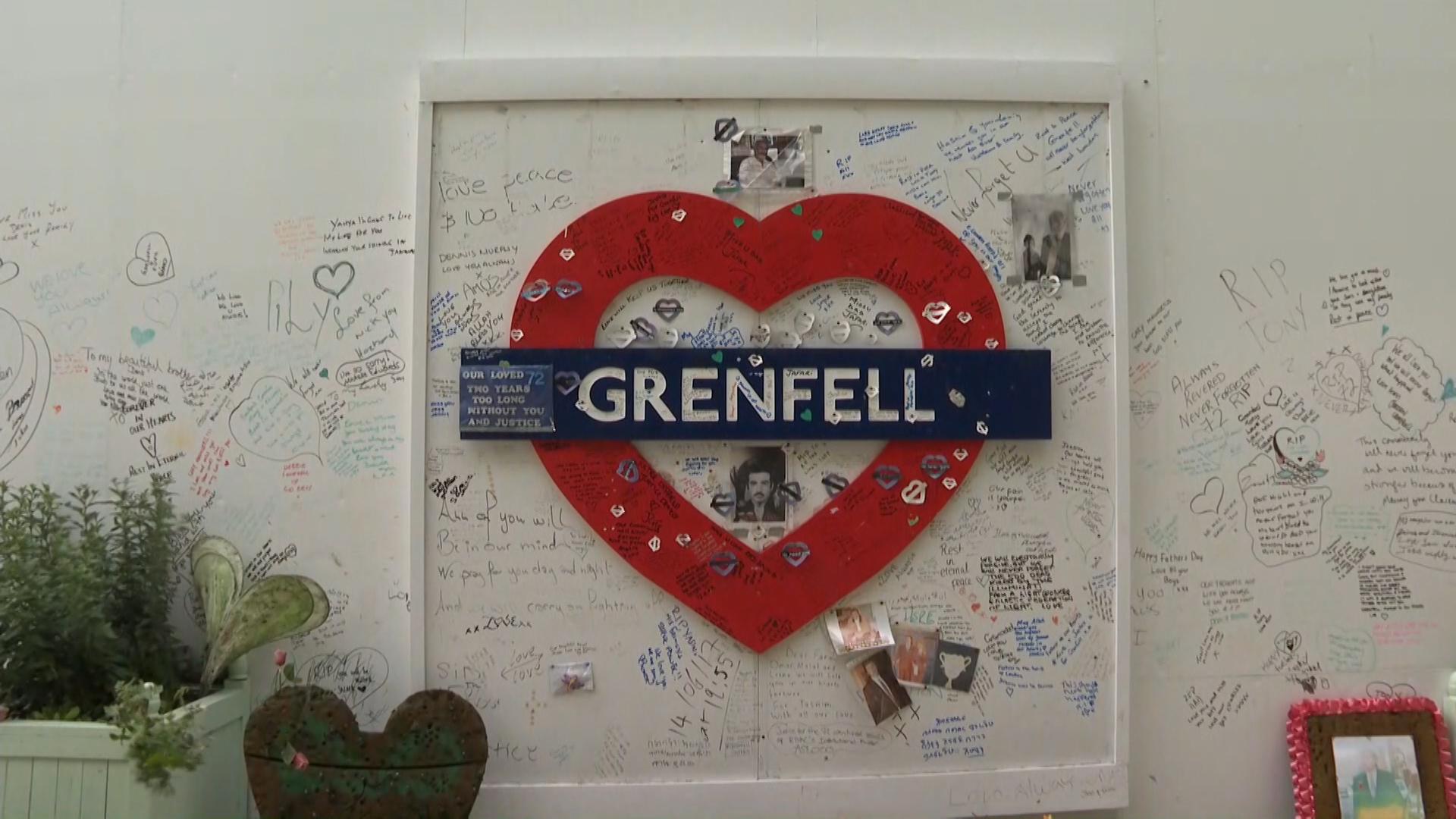02:41

A survivors' groups has welcomed a report into the Grenfell Tower fire that criticized the London Fire Brigade's (LFB) 'systemic failures' in regards to the disaster, while raising alarming questions over the building's management.
Published on Wednesday, the report conveyed the findings of the first phase of the inquiry into the fire that claimed 72 lives.
"Grenfell Tower was home to a strong and vibrant community that was torn apart by the fire," wrote inquiry chairman Martin Moore-Bick.

Annual marches take place to commemorate the fire. (Credit: AP)
Annual marches take place to commemorate the fire. (Credit: AP)
Ex-Judge, Moore-Bick attacked the LFB's 'stay put' strategy, which led to residents being advised by emergency call operators to remain in their homes for nearly two hours after the fire had started.
Campaign group, Grenfell United stated: "It is heart-breaking to read that more of our loved ones could have been saved that night if the building was evacuated earlier."

18 children died in the disaster (Credit: strmx2)
18 children died in the disaster (Credit: strmx2)
The report marks the "courage and devotion to duty" of the firefighters at the scene, while taking aim at the brigade's "significant systemic failings," condemning the LFB's preparations and training.
While the second phase of the report is expected to look at the issue with more scrutiny, Moore-Bick noted that the principal reason the fire spread was the aluminium composite cladding, filled with plastic, "which acted as a source of fuel" for the blaze.
17 minutes after the first call to emergency services was made, the fire - originating on the fourth storey - had reached the 22nd floor. 6 minutes later it had reached the roof, soon engulfing the whole building in flames.
"They (the external walls) did not adequately resist the spread of fire having regard to the height, use and position of the building. On the contrary, they actively promoted it," he wrote.
Grenfell United said the report showed "the immediate and real dangers" of "highly combustible cladding and insulation."

Corbyn and Dent-Coad have defended London firefighters (Credit: AP)
Corbyn and Dent-Coad have defended London firefighters (Credit: AP)
MPs held a minute's silence for the victims and survivors ahead of a debate on the report's findings.
Prime Minister Boris Johnson, "Today, the whole country, the whole world, is finally hearing the truth about what happened at Grenfell Tower on 14 June 2017."
The focus on the London firefighters, over 250 of whom battled the blaze led to a defense from Labour leader, Jeremy Corbyn said: "It wasn't firefighters who diluted building regulations or put flammable cladding on Grenfell Tower."
During a parliamentary debate on the issue, Corbyn condemned the PM, referencing his time as London Mayor that preceded the disaster.
"As mayor of London, the now prime minister was at the forefront of the cuts to our fire service. In the eight years that he was mayor, the London fire brigade was required to make gross savings of over £100m, cutting of 27 fire appliances, 552 firefighters, 324 support staff, two fire rescue units, three training appliances and closing ten London fire stations."
Grenfell United have urged the government to adopt all 46 of the report's recommendations, which, during the debate, Johnson vowed to do, stating that he was personally committed to ensuring the lesson's from Grenfell are not forgotten.
The recommendations range from regular inspections of blocks of flats to urgent inspections of fire doors across all multi-occupancy, residential properties, among others.

The second part of the inquiry is expected to take another two years. (Credit: AP)
The second part of the inquiry is expected to take another two years. (Credit: AP)
In the early hours of June 14, 2017 the fire broke out in a fourth floor flat, spreading rapidly up the building's exterior bringing fire and smoke to the upper floors. Over 250 firefighters, from stations across London, battled the blaze which burned for 24 hours.
It was the worst residential fire since the Second World War, causing the death of 72 people.
Expected to take two years, the inquiry's second phase will focus on the wider circumstances of the fire: How a 23-storey social housing block, owned by one of London's richest local councils, could become a tinderbox.
It is expected to look more closely into the Grenfell's 2016 renovation, signed off by the council, in which the flammable cladding was fixed to the building.